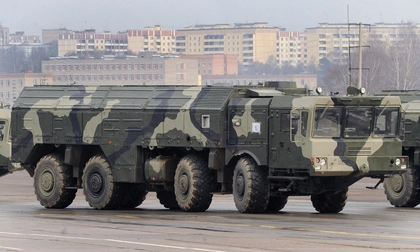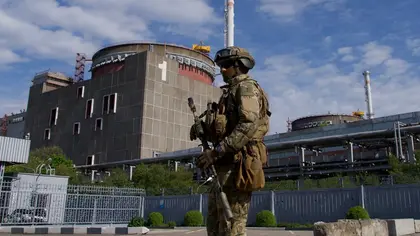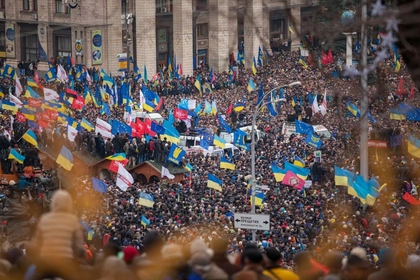Ukraine and Russia have once again accused each other of plotting to initiate a catastrophic disaster at the Zaporizhzhia Nuclear Power Plant (ZNPP), with Moscow even going so far as to say Kyiv will attack “literally at night, in the dark” later today.
What evidence has Russia provided for their claim?
None, and as with any claim from the Kremlin, it should be treated with a generous pinch of salt.
The statement came from Renat Karchaa, an advisor to Russia's Rosatom nuclear agency, who said on Tuesday: “Today, we got information that I am authorised to announce... On July 5, literally at night, in the dark, the Ukrainian army will try to attack the Zaporizhzhia nuclear power plant.”
Speaking to Russian state television, he claimed that Ukraine planned to use “high-precision, long-range weapons” as well as drones to attack the facility.
What has Ukraine said?
Ukraine has suggested Moscow is laying the ground for a false flag attack that would target the Russian-occupied ZNPP which it would then blame on Kyiv.
Speaking to his French counterpart, Emmanuel Macron, on Tuesday, President Zelensky warned Russia was planning “dangerous provocations” at the facility and said it had “installed objects similar to explosives” at the plant.
“Perhaps to simulate the hit on the plant. Maybe they have some other scenario. But in any case, the world sees it,” the Ukrainian leader said.

Russia Boosts Missile Production, Stockpiles At Least 1,500 for Ukraine Strikes
The claim about the explosives was earlier made by the Ukrainian army, which warned of the “possible preparation of a provocation on the territory of the Zaporizhzhia power plant in the near future.”
It claimed that “external objects similar to explosive devices were placed on the outer roof of the third and fourth reactors” at the site.
“Their detonation should not damage power units, but may create a picture of shelling from the Ukrainian side,” it said, alleging that Moscow would “misinform on this.”
What did Macron say?
He hasn’t commented directly but Zelensky said: “We agreed to keep the situation under maximum control together with the IAEA (International Atomic Energy Agency).”
How real is the threat?
Fears over the safety risks for the nuclear plant, the largest in Europe, have persisted throughout Russia's full-scale invasion and previous actions by Moscow’s forces have proven it is not above causing huge levels of destruction in order to further its aims in those areas of Ukraine it currently occupies.
Last month the destruction of the Kakhovka dam in Kherson caused untold environmental destruction and human suffering.
In Kyiv, embassies and other international organizations in the Ukrainian capital appear to be taking a “business as usual” approach with some genuinely surprised by the suggestion of a need for concrete contingency plans when contacted by Kyiv Post.
The reaction of a contact at a Western embassy was typical: “Evacuation? We don’t have any plans to evacuate personnel in Kyiv, the ZNPP is far from here and doesn’t pose any great immediate threat.”
A senior representative of an international organization said: “We’ve briefed people on what to do if the worst happens, which boils down to just stay put, close your windows and doors, and wait for official advice. We’re not withdrawing anyone from Kyiv but continue to monitor this situation, particularly for our staff working in the field.”
According to the Minister of Health, Viktor Liashko, Kyiv is beyond the area likely to suffer any potential radiation impact from an attack on the ZNPP.
“Kyiv will not feel the consequences of a nuclear explosion at the ZNPP, should the Russians dare to carry out this terrorist attack,” he said.
He added that the Ministry of Health (MOZ) has, in any case, developed, put into place and checked notification systems that will identify the level and scope of any “fall-out.”
You can also highlight the text and press Ctrl + Enter






